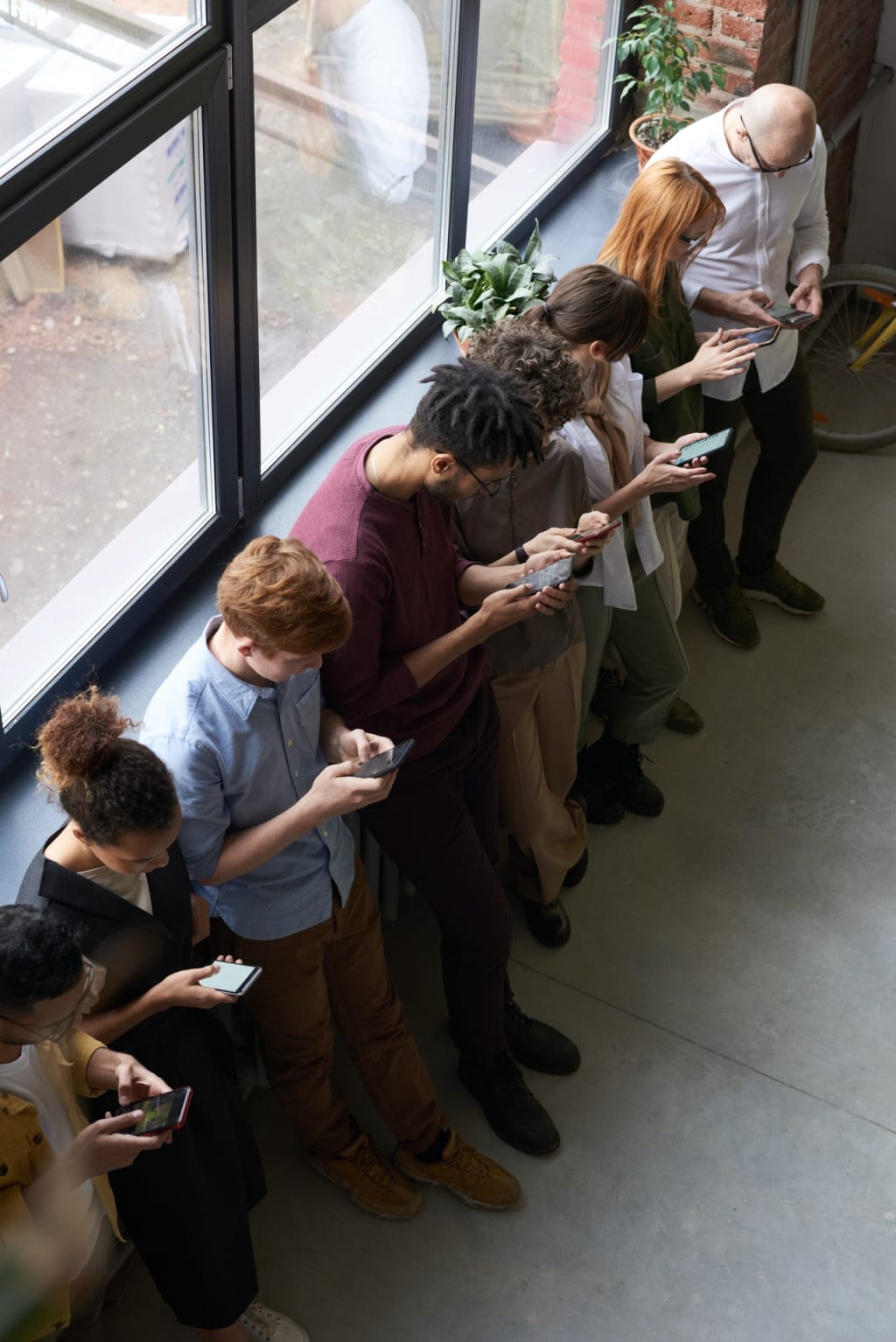Social media and its impact on humans
Is social media content worthy of your time and life?

Hello Everyone, I am here today writing my thoughts about a very contradictory topic. I hope you like it and subscribe to my page to get regular updates. Today’s topic is about social media and its impact on humans.
During COVID, with all the restrictions in place, we have seen an increased social media trend. Everyone was not only using social media platforms but was also trying to be on social media with their unique talent (and that could be literally anything).
But hey,
All that glitters is not gold
What a perfect statement. And that’s what I am going to talk about today. With the exponential growth of technology, social media is now an integral part of our lives. But, please bear with me when I stop you here to shake your thoughts and tell you that, Social media may be a part of our lives
But it is not our lives
It should not be affecting the way we live our lives. As described by Hines in his research work, Social media can be best described as different forms of digital communication mediums used through using the Internet service for informal communication (Hines, 2010).
Everyone is online but no one is available
This sort of technology has recently been found to have an effect on interpersonal relationships by causing misunderstandings and misinterpretations of individual activities. Hines further discussed in his work that the change in behavior of oneself while being on social media in comparison to real life, is the basis of many problems arousing in relationships.
For me, this was shocking information. And I wanted to validate it on my own. The COVID Pandemic was the perfect time for me to test this theory and believe me when I tell you this, that Hines was not only right, among many other researchers he was raising the red flag and warning people about the effect of social media on humanity.
I tested all the points discussed by Hines in his study. To start off, Hines correctly stated that Social media changes your lifestyle. I believe it’s safe to say that there are two types of people. One who lives their lives in the present. For these people, living day-to-day life, and off-the-grid life is much more fun and productive.
(Like the ONAGI state from the season FRIEDNs) It feels wrong to refer to FRIEDNS (TV Serial) while talking about social media impact, but hey who hasn’t watched it?
And then there are those who have made their lives on social media. But these people are all about fame, being viral, glamour, money, connections, viewers, followers, and sometimes even more.
My sincerest apologies, to cut the flow of the article, but please bear with me when I tell you this, who so every quoted that
Excessive use of everything is wrong
He was 100% correct. Personality disorder is another issue. Social media helps you to obsess about someone and become obsessed with them and their lifestyle. This obsession could potentially trigger mental problems for you leading to personality disorder.
It’s alright to follow someone. But it is ethically, morally, psychologically, and emotionally wrong to live someone else’s life. You must not destroy your worldly habits just because someone else is not doing something.
In continuation to our discussion on the problems caused by social media let me tell you one key feature of social media. Most of the time information on social media reflects a false image of something which has been done in a specific environment or due to some specific reason.
Social Media doesn’t help to understand if the content presented is right or wrong.
You must be sane at all times. Because insanity will only bring pain and there is no gain in insanity. Utilizing social media content, one should be strong enough to not take any impact from the content.
If you are thinking that either social media has no impact on your or has minimal impact on you, then, believe me, you are wrong. It affects us all. The results of the effect vary from person to person.
Questioning the authentication of the content is one of the most effective ways to analyze and observe the quality of the content. If it’s useless, especially time-wasting then you should ignore the content and utilize your time more wisely.
Ensuring massive traffic of content coming your way is difficult to stop all the content and analyze it. So you have to set some time limits for yourself to use the content. And also choose specific people (highly influential) to get their content, if needed.
This article is written with only one purpose in mind and that is to make you understand what social media is doing. Once you understand what it does only then you can revere the whole process, optimize it and use it for your benefit.
What are your current activities on social media? Do you behave any differently on social media than in real life? Do you think you have a personality disorder? Would you not be delighted to know that you can get your life back? Are you still going on to sit back and do nothing about your social media addiction problem? Let me know in the comment section. I would be happy to understand your point of view on this.
In the end today I am going to leave you with some published work on positive or negative social media’s impact on humanity. These are for those of you who love to read and explore the new depths of information on social media’s impact.
Hines, M. L. (2010). “Social Networking Sites. inch In New Perspectives on Modern Communication: Proceedings, 11th International Workshop (pp. 1-3). doi: http://dx.doi.org/10.1200/J2021003033A1
Mayer, R., & Pritchard, S i9000. (2008). The relationship among social networking sites, internet usage and depression in teenagers. Diary of Adolescent Medicine, 50(9), 635-642. Retrieved via https://doi.org/10.1016/j.adom.2007.07.012
Cohn, G. E., & Smith, B. A. (2010). Mobile phones use: Effects on relationships. Journal on Personal Connection, 8(4), 237-250. Retrieved from http://doi.org/10.1037/jpp.2009.04.001
Eriksson, J., Karlstrand, F., Leibowitz, K., Bjørnholt, I., Schmitz, R. H., Stenzel, T., Ohlsson, S. L., … Stein, N. (2009). Using the web for research. Communications Quarterly, 54(2), 7-17. Retrieved via http://doi.org/10.1057/cq.2007.08.02
Happy reading everyone.
About the Creator
Ahmad Zubair
I am a technical fraud analyst by profession and by passion I am still searching for it...






Comments
There are no comments for this story
Be the first to respond and start the conversation.